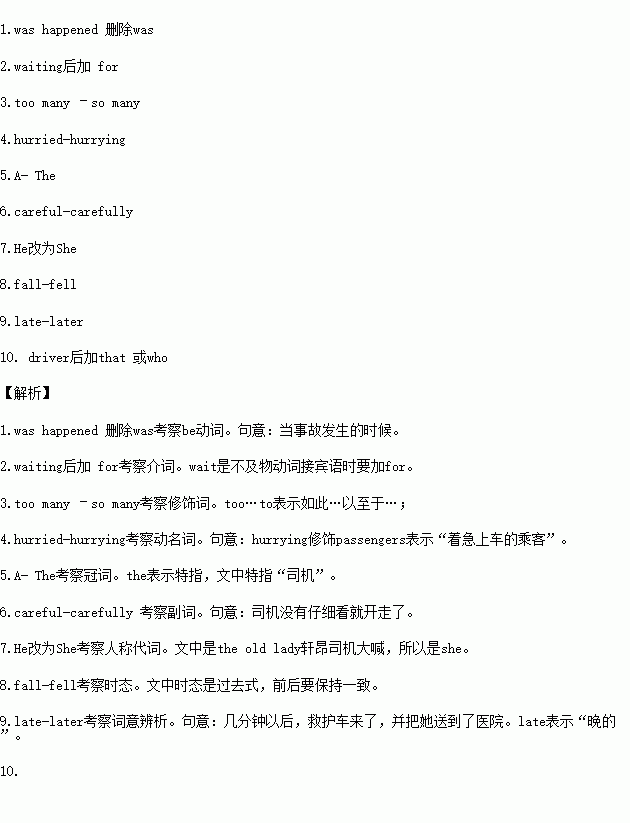题目内容
短文改错
When the accident was happened, I was standing near a bus stop. There I saw an old lady waiting a bus with her umbrella. The bus soon arrived. There were too many passengers hurried to get on it that the old lady couldn’t get on. A driver closed the door without looking careful and drove away. Unluckily, the old lady’s umbrella was caught by the door. He shouted to the driver but he didn’t hear. The bus pulled her along the road. Finally, she fall to the ground. Several minutes late, the ambulance came and took her to hospital. I thought it was the driver should be responsible for the accident.
练习册系列答案
相关题目

